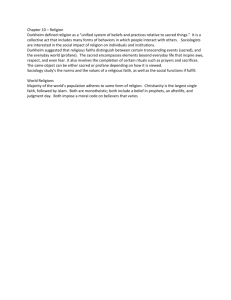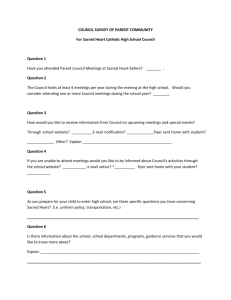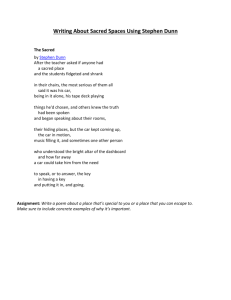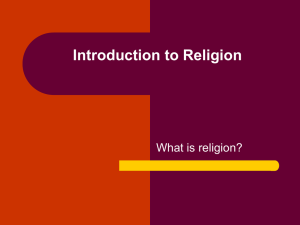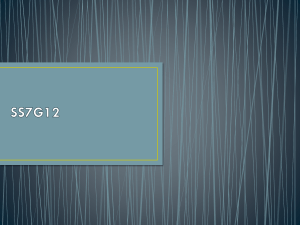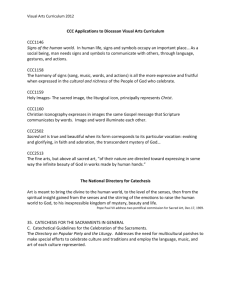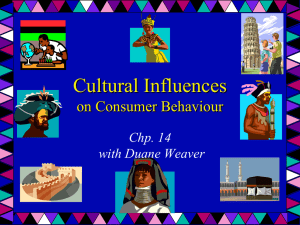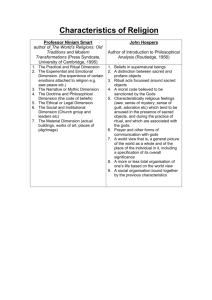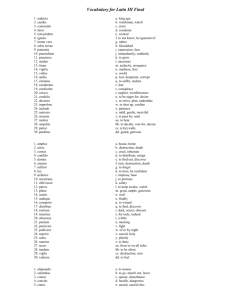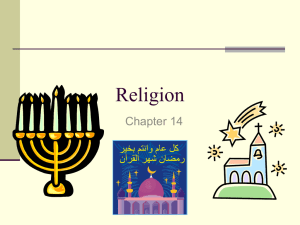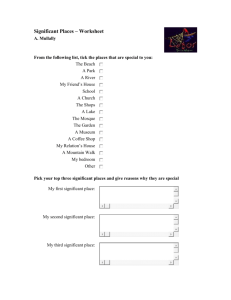Definitions of Religion - University of San Diego Home Pages
advertisement
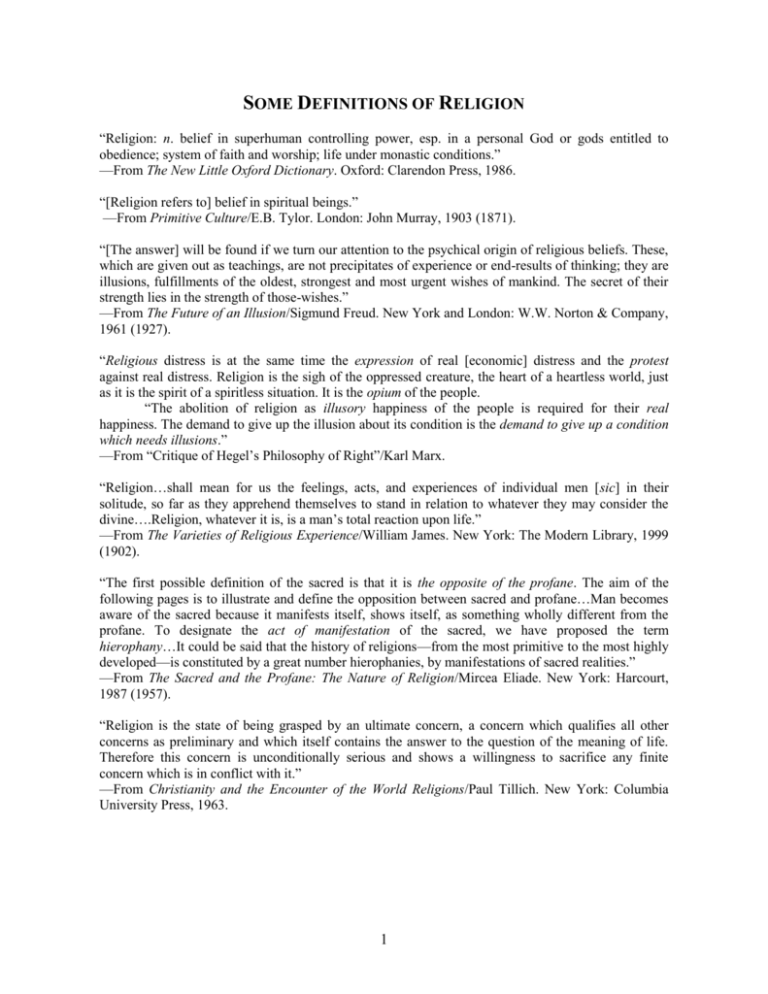
SOME DEFINITIONS OF RELIGION “Religion: n. belief in superhuman controlling power, esp. in a personal God or gods entitled to obedience; system of faith and worship; life under monastic conditions.” —From The New Little Oxford Dictionary. Oxford: Clarendon Press, 1986. “[Religion refers to] belief in spiritual beings.” —From Primitive Culture/E.B. Tylor. London: John Murray, 1903 (1871). “[The answer] will be found if we turn our attention to the psychical origin of religious beliefs. These, which are given out as teachings, are not precipitates of experience or end-results of thinking; they are illusions, fulfillments of the oldest, strongest and most urgent wishes of mankind. The secret of their strength lies in the strength of those-wishes.” —From The Future of an Illusion/Sigmund Freud. New York and London: W.W. Norton & Company, 1961 (1927). “Religious distress is at the same time the expression of real [economic] distress and the protest against real distress. Religion is the sigh of the oppressed creature, the heart of a heartless world, just as it is the spirit of a spiritless situation. It is the opium of the people. “The abolition of religion as illusory happiness of the people is required for their real happiness. The demand to give up the illusion about its condition is the demand to give up a condition which needs illusions.” —From “Critique of Hegel’s Philosophy of Right”/Karl Marx. “Religion…shall mean for us the feelings, acts, and experiences of individual men [sic] in their solitude, so far as they apprehend themselves to stand in relation to whatever they may consider the divine….Religion, whatever it is, is a man’s total reaction upon life.” —From The Varieties of Religious Experience/William James. New York: The Modern Library, 1999 (1902). “The first possible definition of the sacred is that it is the opposite of the profane. The aim of the following pages is to illustrate and define the opposition between sacred and profane…Man becomes aware of the sacred because it manifests itself, shows itself, as something wholly different from the profane. To designate the act of manifestation of the sacred, we have proposed the term hierophany…It could be said that the history of religions—from the most primitive to the most highly developed—is constituted by a great number hierophanies, by manifestations of sacred realities.” —From The Sacred and the Profane: The Nature of Religion/Mircea Eliade. New York: Harcourt, 1987 (1957). “Religion is the state of being grasped by an ultimate concern, a concern which qualifies all other concerns as preliminary and which itself contains the answer to the question of the meaning of life. Therefore this concern is unconditionally serious and shows a willingness to sacrifice any finite concern which is in conflict with it.” —From Christianity and the Encounter of the World Religions/Paul Tillich. New York: Columbia University Press, 1963. 1 “A religion is (1) a system of symbols which acts to (2) establish powerful, pervasive, and long-lasting moods and motivations in men [sic] by (3) formulating conceptions of a general order of existence and (4) clothing these conceptions with such an aura of factuality that (5) the moods and motivations seem uniquely realistic.” —From The Interpretation of Cultures/Clifford Geertz. New York: Basic Books, 1973. “[This book] is intended to delineate the various manifestations of religion in complex ways….The seven [dimensions of religion] are as follows (the order is rather random): 1. The ritual and practical dimension….2. The doctrinal or philosophical dimensions….3. The mythic or narrative dimension….4. The experiential or emotional dimension….5. The ethical or legal dimensions….6. The organizational or social dimension….7. The artistic or material dimension.” —From Dimensions of the Sacred/Ninian Smart. Berkeley: University of California Press, 1996. “A proper definition [of religion] must therefore be polythetic and flexible, allowing for wide variations and attending, at a minimum, to these four domains: (1) A discourse whose concerns transcend the human, temporal, and contingent, and that claims for itself a similarly transcendent status; (2) A set of practices whose goal is produce a proper world and/or proper human subjects, as defined by a religious discourse to which these practices are connected; (3) A community whose members construct their identity with reference to a religious discourse and its attendant practices; and (4) An institution that regulates religious discourse, practices, and community, reproducing them over time and modifying them as necessary, while asserting their eternal validity and transcendent value. —From Holy Terrors: Thinking about Religion after September 11/Bruce Lincoln. Chicago: University of Chicago Press, 2006 (2003). 2
